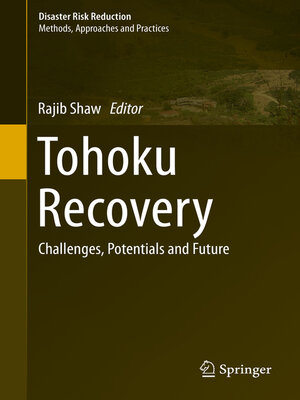
Sign up to save your library
With an OverDrive account, you can save your favorite libraries for at-a-glance information about availability. Find out more about OverDrive accounts.
Find this title in Libby, the library reading app by OverDrive.



Search for a digital library with this title
Title found at these libraries:
| Library Name | Distance |
|---|---|
| Loading... |
The March 11 disaster in 2011, known as the Great East Japan Earthquake and Tsunami, caused extensive damage in various sectors. Through the recovery process, special lessons are being learned and applied in the affected region. This book attempts to draw lessons from different issues and sectors such as policy perspectives (both national and local), the role of international NGOs, fishing industries and other livelihoods, temporary housing, health, heritage, and lesson sharing. The book outlines the need and approach for sharing the lessons with wider communities in developing those lessons. Based on intensive field research, the book also provides some key lessons from community-based recovery in the affected regions of Iwate, Miyagi, and Fukushima prefectures.
This book has 13 chapters in two parts. The first part of the book, with seven chapters, provides a set of lessons from diverse sectors. The second part, with six chapters, provides case studies from different areas of Tohoku. Six specific issues are addressed in part 1: the role of international agencies, livelihood (namely, fisheries) recovery, temporary housing, health, heritage, and lesson sharing. Part 2 has six case studies from different areas of the Tohoku region, including Fukushima.
The primary target groups for this book are students and researchers in the fields of environment, disaster risk reduction, and recovery studies. The book provides them with a good idea of the current research trends in the field andfurnishes basic knowledge about these vital topics. Another target group comprises practitioners and policy makers, who will be able to apply the knowledge collected here to policy and decision-making.







